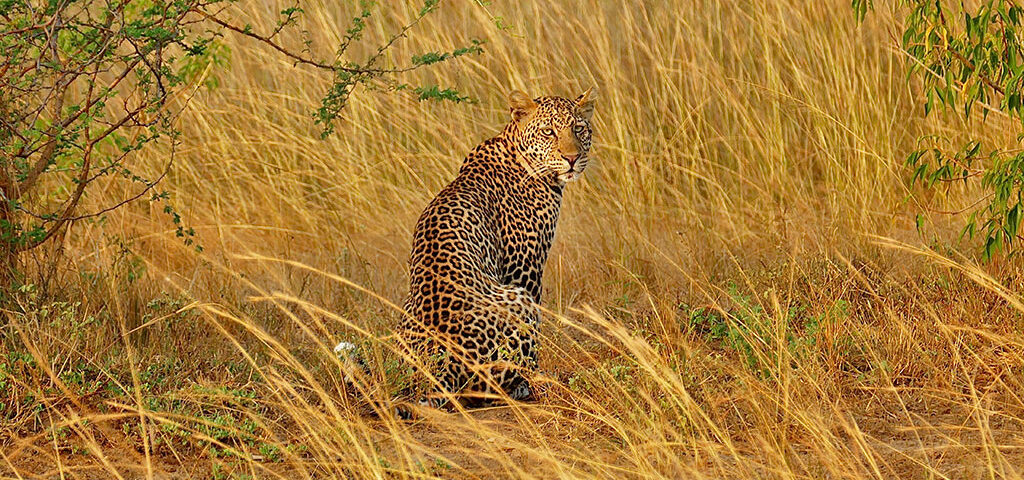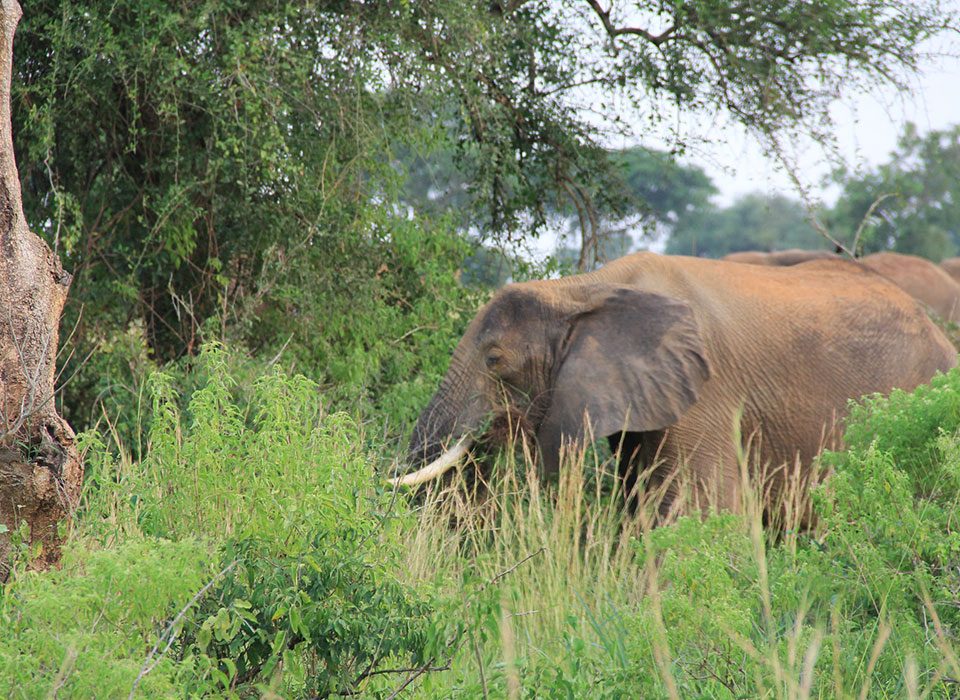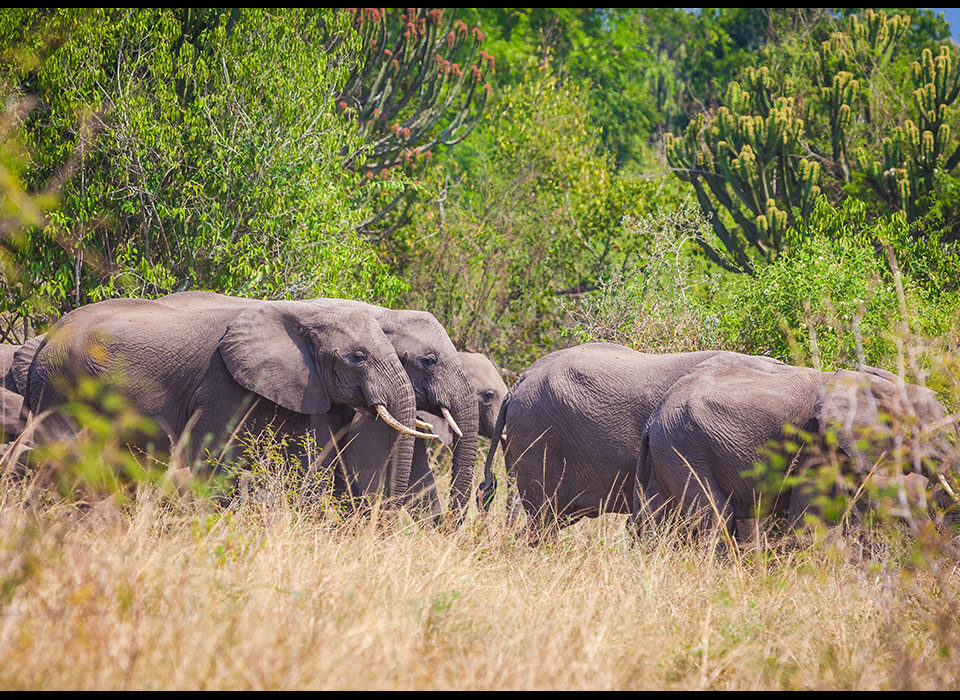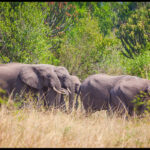
Best Parks to See Elephants in Uganda
December 30, 2024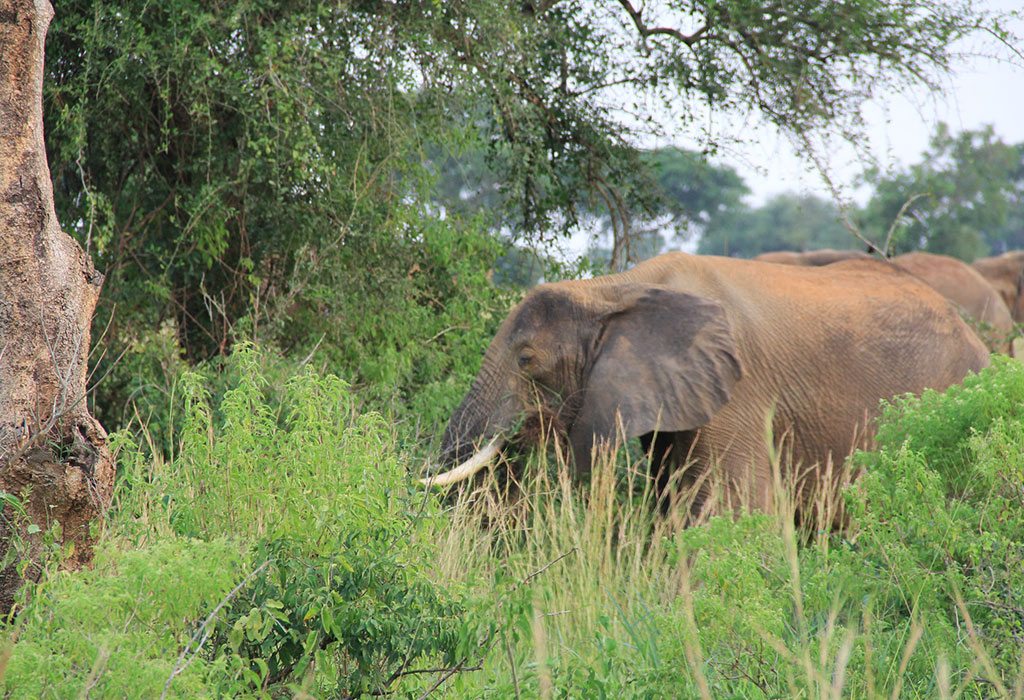
The Lifestyle of Elephants in Uganda: A Majestic Journey through the Wild
December 30, 2024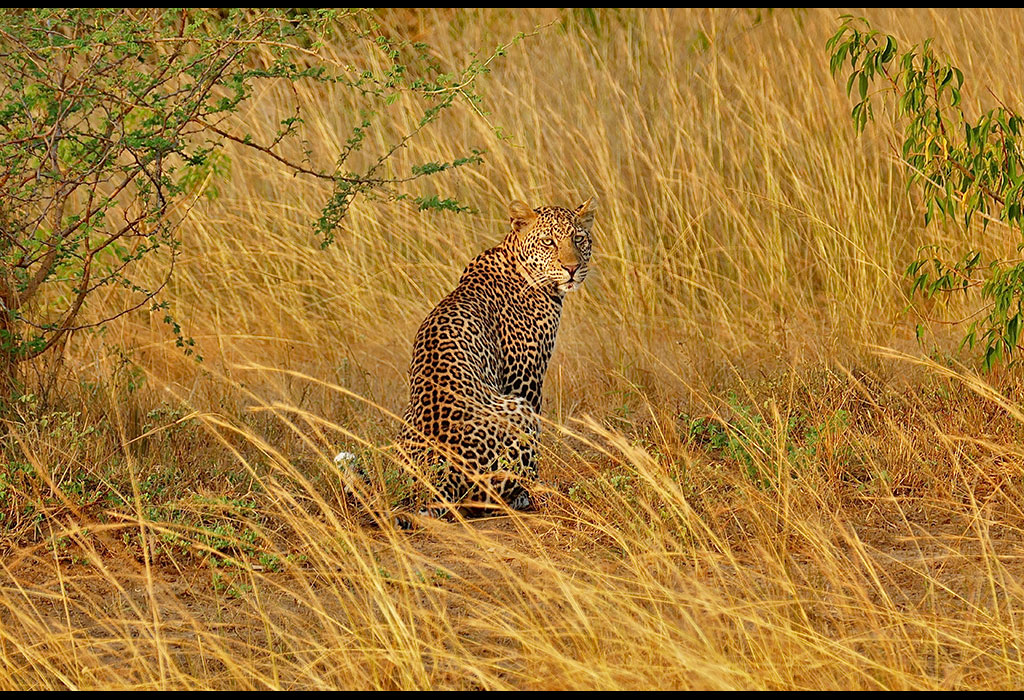
Leopards are the epitome of grace, power, and stealth in Uganda’s wild landscapes. Known for their elusive nature, these magnificent big cats thrive in the diverse ecosystems of Uganda, from the savannahs of Queen Elizabeth National Park to the dense forests of Kibale. If you’re planning a wildlife safari in Uganda with Wagatil Safaris, understanding the lifestyle of leopards will make your encounters even more thrilling.
The Habitat of Leopards in Uganda
Leopards (Panthera pardus) are highly adaptable predators found in a variety of habitats across Uganda. They can be spotted lounging in the acacia trees of Murchison Falls National Park or stalking prey under the canopy of Bwindi Impenetrable Forest. Their adaptability allows them to thrive in forests, grasslands, and even semi-desert areas, making Uganda an ideal home for these majestic creatures.
Wagatil Safaris ensures travelers explore these leopard-rich areas, maximizing chances for sightings in their natural environments. Whether you’re a seasoned wildlife enthusiast or a first-time visitor, Uganda’s rich biodiversity guarantees an exciting adventure.
Leopard Behavior and Hunting Techniques
Leopards are solitary animals, often seen alone unless a mother is with her cubs. Known as the ultimate ambush predators, they use stealth and patience to approach their prey. Leopards are primarily nocturnal hunters, relying on their keen vision and hearing to track animals such as impalas, bushbucks, and even smaller prey like birds and rodents.
A unique feature of leopards is their habit of dragging kills into trees to avoid scavengers such as hyenas. This extraordinary strength highlights their role as apex predators in Uganda’s food chain.
Wagatil Safaris offers guided game drives and night safaris, where you might witness a leopard prowling in the moonlight or perched on a tree branch, enjoying its kill.
Leopard Social Structure
Unlike lions, leopards do not live in prides. Instead, they establish and defend territories marked by scent and scratch marks on trees. Male leopards typically have larger territories, which overlap with those of several females.
Females are fiercely protective of their cubs, hiding them in dense thickets or caves until they are strong enough to fend for themselves. Cubs stay with their mothers for up to two years, learning survival skills crucial for their independence.
Traveling with Wagatil Safaris not only offers opportunities to observe leopards in the wild but also provides insights from expert guides who explain their complex social dynamics.
Best Places to Spot Leopards in Uganda
While leopards are notoriously elusive, certain parks in Uganda offer higher chances of sightings:
Queen Elizabeth National Park:
The famous Ishasha sector is home to tree-climbing lions, but it’s also a leopard hotspot. Early morning game drives with Wagatil Safaris often lead to memorable leopard encounters.
Murchison Falls National Park:
Uganda’s largest national park boasts diverse habitats that support a healthy leopard population. The dense woodlands are particularly rewarding for keen-eyed travelers.
Kibale National Park:
Renowned for its primates, Kibale also houses leopards, although they are rarely seen during the day. Night drives offer the best chance of spotting them here.
Lake Mburo National Park:
Its compact size and open savannahs make this park ideal for observing leopards during dusk and dawn.
Conservation Challenges and Efforts
Leopards face numerous threats, including habitat loss, human-wildlife conflict, and poaching. As human populations grow, leopard habitats are encroached upon, forcing them into closer proximity with people. This often leads to retaliation killings when leopards prey on livestock.
Fortunately, Uganda is committed to wildlife conservation. Protected areas like national parks and wildlife reserves play a crucial role in safeguarding leopard populations. Wagatil Safaris partners with local conservation initiatives, ensuring your safari supports sustainable tourism and community-driven efforts to protect these iconic predators.
Leopards and Ugandan Culture
In Ugandan folklore, leopards are symbols of power and cunning. They appear in stories as both protectors and tricksters, reflecting their complex role in the ecosystem. Spotting a leopard during your safari is often considered a stroke of luck, as they are among the most sought-after animals on game drives.
Photographing Leopards: Tips for Success
Capturing leopards on camera can be challenging but incredibly rewarding. Here are a few tips:
Be Patient: Leopards are masters of camouflage and often blend into their surroundings.
Use a Telephoto Lens: A lens with at least 300mm is ideal for capturing close-up shots without disturbing the animal.
Focus on Early Morning or Late Evening: Leopards are most active during these hours, offering the best light for photography.
Work with Expert Guides: Wagatil Safaris guides know where leopards are likely to be found, increasing your chances of capturing the perfect shot.
Why Choose Wagatil Safaris for Leopard Tracking?
Wagatil Safaris is dedicated to creating unforgettable wildlife experiences. Their knowledgeable guides, comfortable safari vehicles, and commitment to conservation make them the ideal partner for exploring Uganda’s wilderness.
From the savannahs of Queen Elizabeth to the riverbanks of Murchison Falls, Wagatil Safaris ensures you not only see leopards but also understand their role in Uganda’s ecosystem.
A Final Word on Leopards in Uganda
The lifestyle of leopards in Uganda is a fascinating blend of stealth, strength, and survival. These elusive predators embody the wild spirit of Uganda, making every sighting an unforgettable moment. With Wagatil Safaris, you’re not just a spectator—you become part of a journey that celebrates the beauty and resilience of these incredible animals.
Book your leopard safari with Wagatil Safaris today and embark on an adventure that will stay with you forever.

